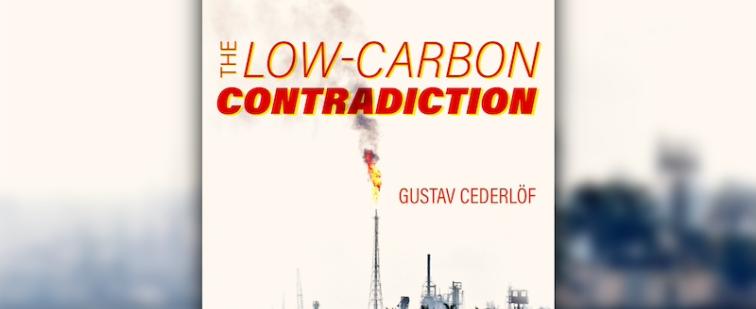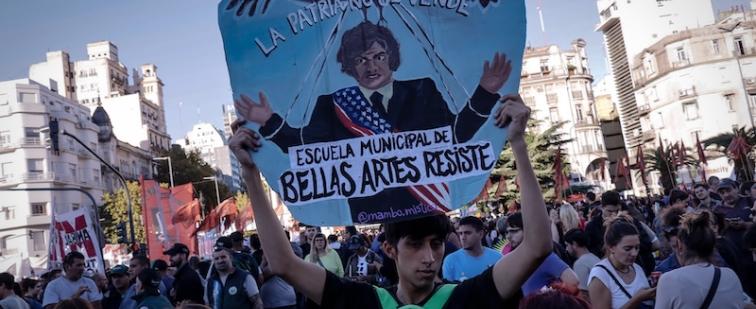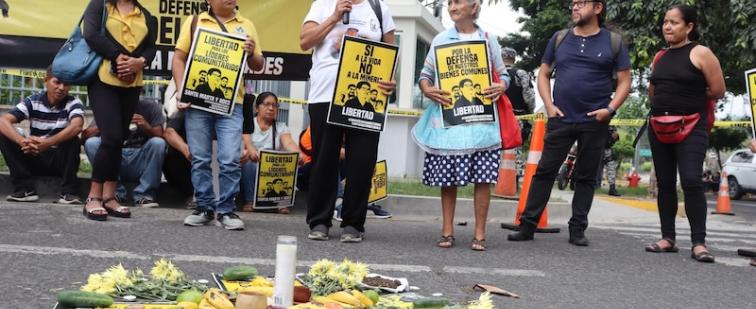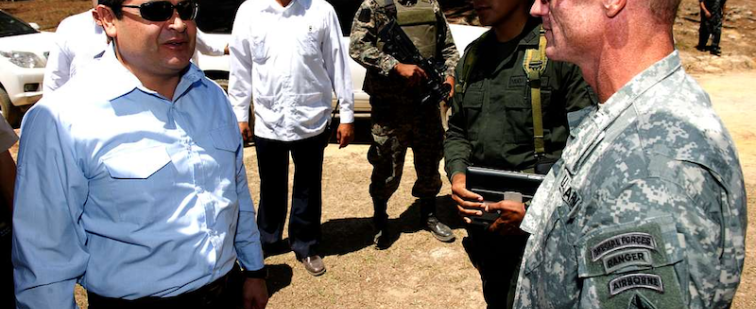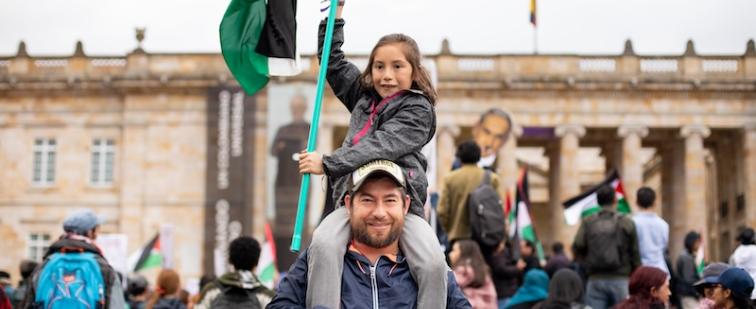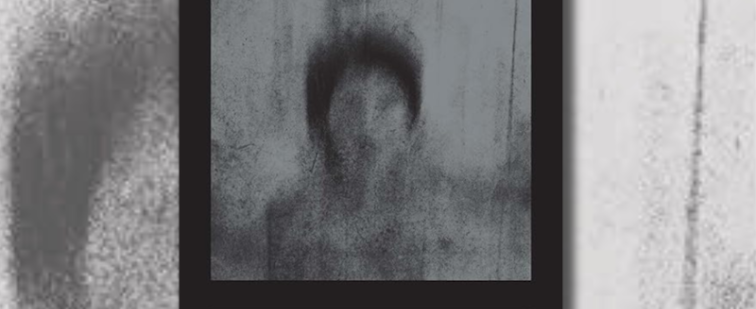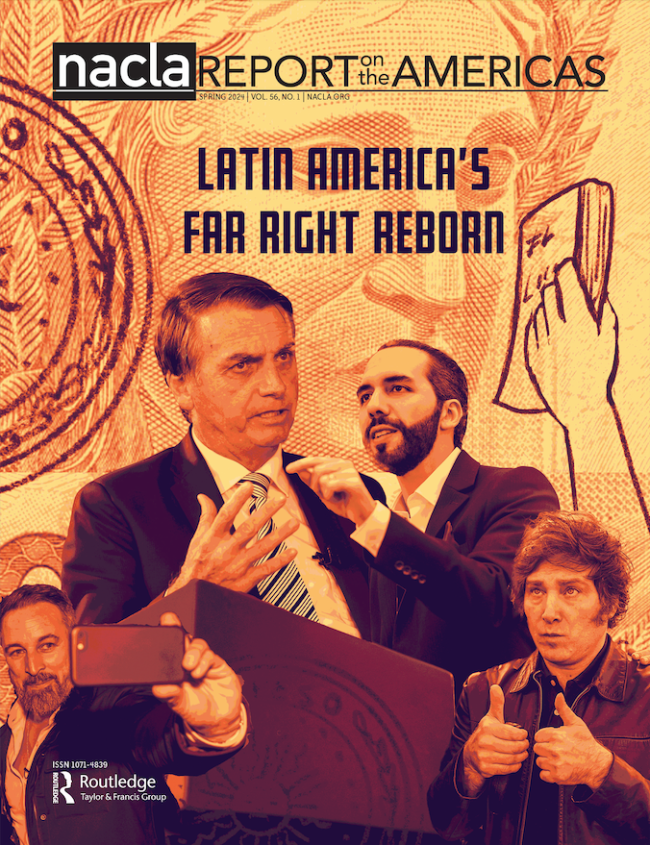Home
Rebel Currents
July 8, 2011
President Mauricio Funes reaffirmed last week that no mining projects will be permitted in El Salvador during his presidency, and condemned the recent murders of anti-mining activists. But anti-mining organizations want a permanent legal ban on mining activity, and are critical of the government’s ongoing study to evaluate the costs and benefits of mining. At a recent meeting with international solidarity activists, Environmental Minister Herman Rosa Chávez offered insight into the government’s position.
Border Wars
July 6, 2011
A personal narrative of an encounter with the Border Patrol on the Tohono O'odham Nation in Southern Arizona. This close encounter with the Homeland Security state gives a glimpse into a place where anything and everything can be justified under the guise of national security and "securing our borders," trumping any impediment in its way. It is this that inspired six Native American activists to lock themselves down at Border Patrol Headquarters in Tucson in May 2010, and who finally won the subsequent court battle on June 29.
Mexico, Bewildered and Contested
July 5, 2011
To no one’s great surprise, Mexico’s once-and-future ruling party (or so it seems), the Institutional Revolutionary Party (PRI), scored major victories in four state elections this Sunday. Mexico State has been governed by the PRI (or its direct ancestors) for over 80 years and that was not expected to change after Sunday’s election. The magnitude of the party’s victory, however, was surprising, impressive and a worrisome sign of its return to hegemony.
July 3, 2011
Since April 15th, members of the P’urhépecha indigenous community of Cherán, Michoacán have self-organized community defense committees to protect themselves from violence amidst Mexico’s drug war. On June 26th a small caravan set off from Cuernavaca, Morelos to bring food supplies to Cherán, to show support for the community, which is both suffering from and resisting the drug war model imposed by Mexican president Felipe Calderón soon after he took office in 2006.
July 3, 2011
By Clayton Conn
Since April 15th, members of the P’urhépecha indigenous community of Cherán, Michoacán have self-organized community defense committees to protect themselves from violence amidst Mexico’s drug war. On June 26th a small caravan set off from Cuernavaca, Morelos to bring food supplies to Cherán, to show support for the community, which is both suffering from and resisting the drug war model imposed by Mexican president Felipe Calderón soon after he took office in 2006.
Cuadernos Colombianos
July 3, 2011
Over the last decade, several studies have warned that agricultural production is one of the most vulnerable sectors in the global economy, particularly for subsistence and small farmers, who are the main food producers in the world. The upcoming U.S.-Colombia Free Trade Agreement is nothing more than the continuation of a policy that promises an economic disaster to small producers, and further opens the door to a global food crisis.
July 1, 2011
On Thursday, June 30, hundreds of people packed into Manhattan’s Riverside Church for the launch of 22nd Caravan to Cuba, and a memorial tribute to the late Reverend Lucius Walker, Jr. Among the people that spoke at the event was former U.S. Attorney General Ramsey Clark, who captured the spirit of the evening, reminding the audience that “now is the time as never before” to continue the work that Walker began.
Traffick Jam
June 30, 2011
Dr. Gordon Rohlehr explains that any meaningful definition of community must take into account those whose struggles and humanity often fall below the collective radar, people who live ‘beneath the underdog’. The lesson he offers should be kept in mind when this Friday prisoners caged in California's supermax prison at Pelican Bay launch a hunger strike to protest the inhumane policies that prevail in the U.S. prison system.
Border Wars
June 28, 2011
This past Sunday, Pulitzer Prize-winning journalist Jose Antonio Vargas "outed" himself as an "illegal alien" in the pages of The New York Times Magazine. The reaction of many in the media establishment has been to dwell on Vargas's practices of deception that allowed him to "pass" for so long. In doing so, these pundits obscure and normalize the apartheid-like system which denies unauthorized immigrants many basic rights, and their complicity in its perpetuation.
Mexico, Bewildered and Contested
June 28, 2011
Last Thursday, President Felipe Calderón held a highly publicized encounter with several victims of the extreme violence that has accompanied his ongoing war against drug trafficking and organized crime. The victims didn’t succeed in getting Calderón to apologize for the inordinate number of deaths and disappearances that have occurred on his drug-war watch, but they did get the president to listen to tales of immense suffering.




